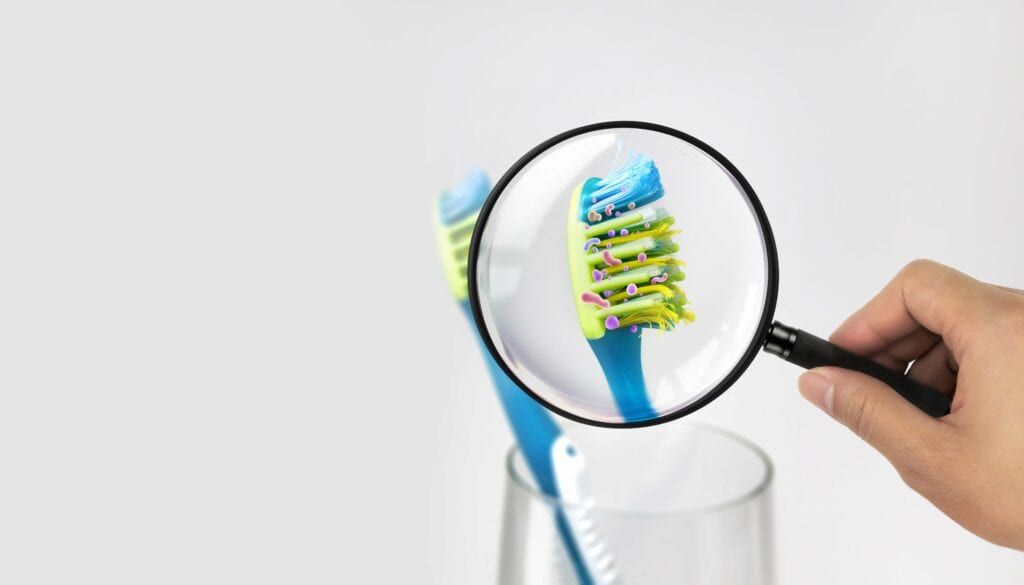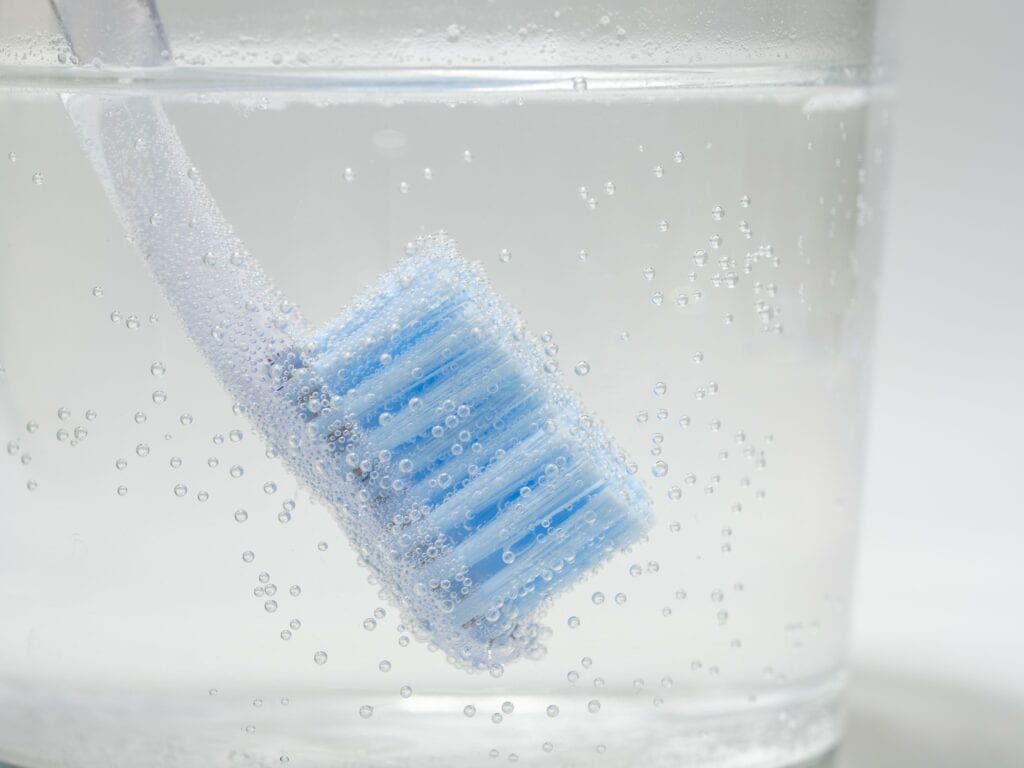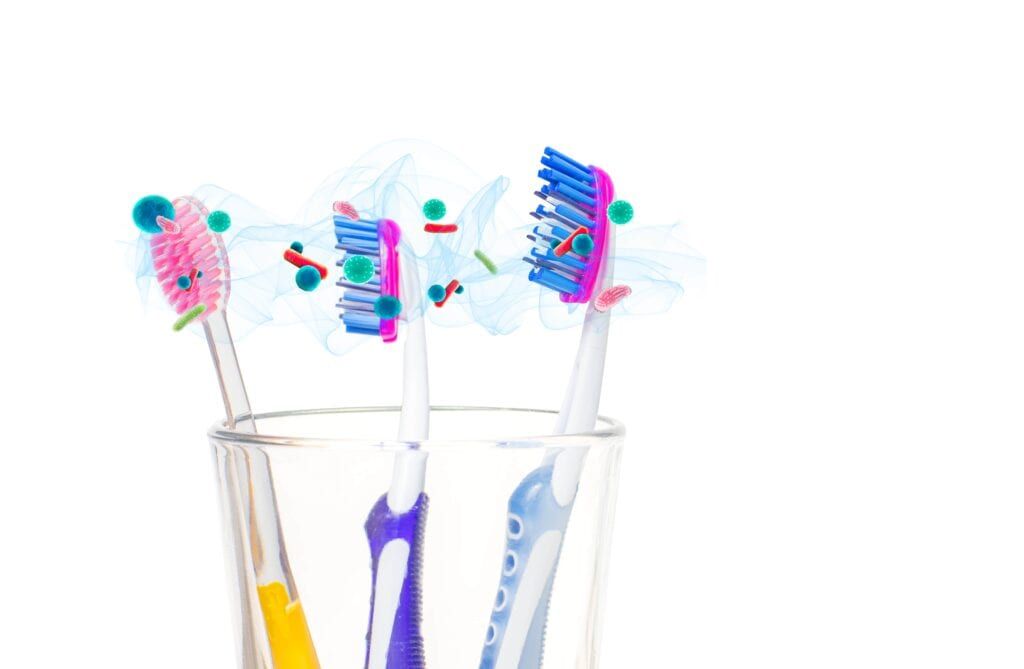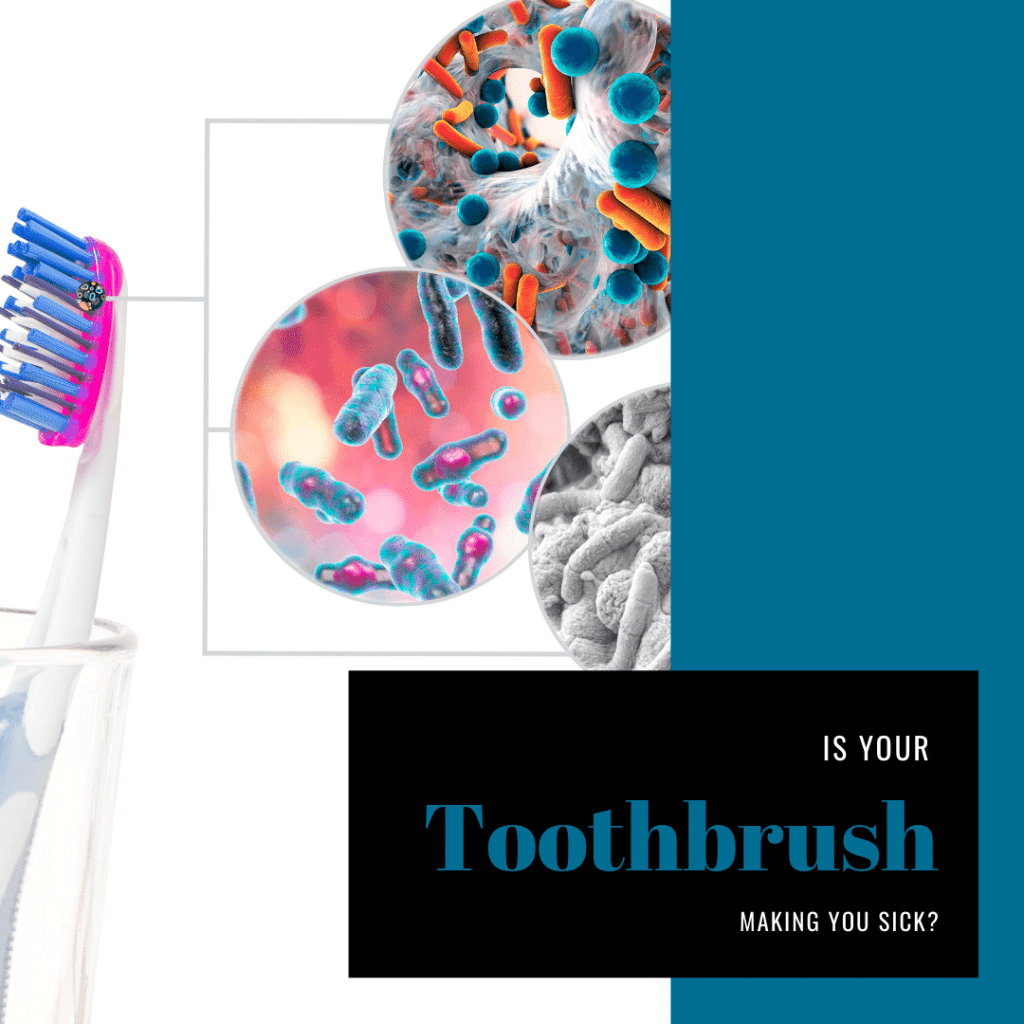If you brush your teeth according to American Dental Association recommendations, then it is estimated that you brush at least 730 times a year. Since brushing is one of the main ways to remove plaque and food debris from the surface of your teeth, this also means that the average toothbrush has 730-days worth of bacteria lurking within its bristles. Ew.

Since this is likely something that you haven’t ever thought about, you may be appalled to realize just how dirty your toothbrush can be, especially considering that you put it in your mouth at least twice a day. Not only does your toothbrush contain bacteria, but most toothbrushes are stored in bathrooms. Bathrooms are known for having bacteria linger in the air since they provide a warm, moist environment. Unfortunately this will only increase bacterial growth on your toothbrush. More ew.
While recent studies have shown that used toothbrushes do grow various microorganisms, there is a lack of evidence showing that these microorganisms are responsible for oral infection or general health problems. Still, reintroducing bacteria into the mouth kind of defeats the purpose of removing it, right? Not only that, but excess bacteria can cause perpetual bad breath. Therefore, here are a few ways to keep your mouth and toothbrush clean:
Use Hot Water
One of the easiest ways to disinfect your toothbrush before using it, is to rinse with hot water before and after each brushing. The hot water can kill many types of bacteria, which can provide an easy and effective way to keep your toothbrush clean. Rinsing after you brush your teeth eliminates new bacteria that your toothbrush has picked up while brushing, while rinsing before brushing is used to remove any lingering bacteria that may have accumulated between uses.

Soak Your Toothbrush
Instead of using hot water to rinse your toothbrush, you can also soak your toothbrush in antibacterial mouthwash for about 2 minutes after each brushing. The mouthwash will kill any remaining bacteria on your toothbrush, however it will also cause your toothbrush to wear down faster.
Store Your Toothbrush Hydrogen Peroxide
After cleaning your toothbrush, you can keep your toothbrush clean by storing it in hydrogen peroxide. Storing your toothbrush bristles down in a cup of hydrogen peroxide helps to minimize bacterial growth. However, you will need to switch out hydrogen peroxide daily to prevent bacteria from accumulating.
Avoid Storing Multiple Toothbrushes Together
Each toothbrush should be stored individually so that it is not touching any other toothbrush. This is because storing multiple toothbrushes together can lead to cross contamination if these toothbrushes regularly touch each other. This is almost like sharing toothbrushes with another person, which is discouraged to prevent the spread of infection.

Keep Your Toothbrush Away from the Toilet
One main reason why bathrooms are full of bacteria is because flushing toilets causes a “toilet plume” effect whereby fecal matter becomes airborne and spreads around your bathroom. Since fecal matter can also end up all over your toothbrush, it is recommended to store your toothbrush in a medicine cabinet, drawer, or at least as far away from the toilet as possible.
Invest in a Toothbrush Sanitizer
There are also different types of toothbrush sanitizers that can kill bacteria on your toothbrush. Toothbrush sanitizers generally use steam and dry heat, an ultraviolet light, or a combination of UV light and heat. The ADA recommends only using toothbrush sanitizers approved by the FDA.
Replace Your Toothbrush
Even when you are doing your best to keep your toothbrush as clean as possible, it is still important to remember to replace it regularly to minimize bacteria accumulation. On average, you can expect to replace your toothbrush every 3-4 months or when the bristles have frayed, someone has been sick in your household, or if someone has accidentally used your toothbrush.

Dr. Sarmad Channo, a Rochester, MI dentist, received his doctorate degree from New York University Dental School. Since then, he has continued studying to broaden his expertise and has also graduated from Progressive Orthodontic Seminars with the highest of honors. Dr. Channo has also served as an instructor for both the McGann Postgraduate School of Dentistry and Progressive Orthodontic Seminars.

